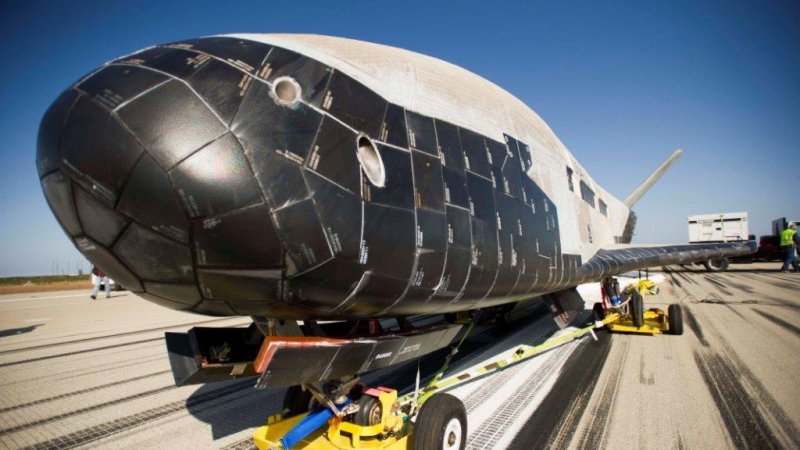1 of 3 | The X-37B Orbital Test Vehicle (OTV), the Air Force's unmanned, reusable space plane, landed at Vandenberg Air Force Base at 5:48 a.m. (PDT) June 16. OTV-2, which launched from Cape Canaveral Air Force Station, Fla., March 5, 2011, conducted on-orbit experiments for 469 days during its mission. The X-37B is the newest and most advanced re-entry spacecraft. Managed by the Air Force Rapid Capabilities Office, the X-37B program performs risk reduction, experimentation and concept of operations development for reusable space vehicle technologies. (photo credit: Boeing)
VANDENBERG AIR FORCE BASE, Calif., June 18 (UPI) -- The United States' X-37B reusable, unmanned space plane returned to Earth following a 469-day test orbit, Boeing reports.
"We congratulate the Air Force Rapid Capabilities Office and the 30th Space Wing at Vandenberg Air Force Base on this second successful mission," said Paul Rusnock, Boeing vice president of Government Space Systems.
"With OTV-1 (orbital test vehicle), we proved that unmanned space vehicles can be sent into orbit and safely recovered. With OTV-2, we tested the vehicle design even further by extending the 220-day mission duration of the first vehicle and testing additional capabilities.
"We look forward to the second launch of OTV-1 later this year and the opportunity to demonstrate that the X-37B is an affordable space vehicle that can be repeatedly reused."
The orbital test vehicle was launched from Florida in March 2011. Before the OTV, only the manned space shuttle was capable of landing and being reused.
The X-37B landed at Vandenberg Air Force Base in California.
Boeing said the objectives of the X-37B program include space experimentation, risk reduction and concept-of-operations development for reusable space vehicle.
The low-orbit vehicle is about 29 feet long and has an orbital speed of more than 17,000 miles per hour.















